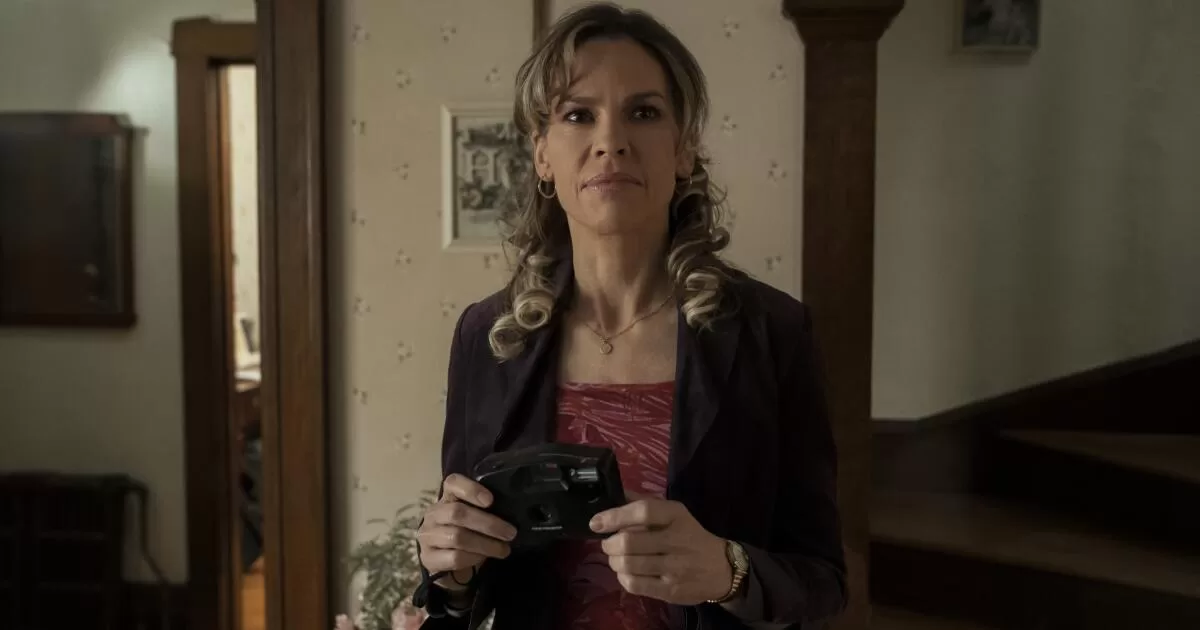In “Ordinary Angels,” directed by Jon Gunn, the maker of 2017’s “The Case for Christ” and producer of 2023’s “Jesus Revolution,” it’s faith in humanity that comes to the fore, though a church parking lot does play a pivotal role in this adaptation of the true story of young Michelle Schmitt, who was once known as the “Snow Baby of Louisville.”
But before we get to the snow, we’ve got to get to know hairdresser Sharon Stevens, played by two-time Oscar winner Hilary Swank. She wrote a memoir titled “Ordinary Angels” and Kelly Fremon Craig (“Are You There God? It’s Me, Margaret”) and Meg Tilly wrote the screenplay. Though little Michelle’s incredible journey offers the climax of the movie, it’s Sharon’s redemption that offers the dramatic arc of the feature film.
We meet Sharon as she’s slamming down shots and dancing on a bar top in 1993 Louisville, Kentucky, where her hair is the only thing reaching for the heavens. After one too many nights of hard drinking, her friend Rose (Tamala Jones) dumps Sharon at an AA meeting, where sobriety doesn’t take, but the exhortation to “find a reason” does. While picking up a six-pack, Sharon notices a newspaper headline about a little girl who has lost her mother and desperately needs a liver transplant. She becomes obsessively, almost strangely fixated on how she can help Michelle Schmitt, showing up unannounced at her mother’s funeral service and bossily inserting herself into the young girl’s life, much to the consternation of Michelle’s stern father Ed (Alan Ritchson), a roofer.
Swank is doing a sort of “Erin Brockovich” thing here, powering through the world with big hair, higher heels and sheer audacity. For much of the film, you will simply be mystified as to why this woman is so taken with Michelle’s plight — her behavior is frankly odd and the character proudly has no boundaries.
The script holds back certain aspects of her backstory to use as reveals, but that strategy doesn’t help us to go along with her emotional journey, as it just seems bizarre that she shows up on the Schmitt’s doorstep and insinuates herself into their financial situation, fundraising for Michelle’s medical bills. Ritchson delivers the only authentic performance for the situation as the befuddled Ed, who objects to Sharon’s constant meddling, though he can’t turn up his nose at the money and favors she pulls with her bulldog determination.
Gunn goes for a gritty, dim look to give the film the air of authentic social realism. Cinematographer Maya Bankovic shoots hospital corridors in low light; honky-tonks are bathed in devilish red gels. There are some legitimately beautiful shots in the film: Ed silhouetted against the fading light as he works on a rooftop; the piercing of headlights through a blizzard.
Swank is appealing and amusing, decked out in fringe and affecting a twang, but it in no way feels real; it’s more of a fun character performance. Ritchson, on the other hand, demonstrates a softer, more expansive side to the tough guy persona he’s perfected on “Reacher.” Even though it’s clear he can stretch farther than what he can do here, it’s nice to see him being cast in heftier roles.
Where “Ordinary Angels” stumbles is taking one unique human interest story from 1994 — in which Louisville rallied around Michelle Schmitt to help get her a liver transplant during a raging blizzard — and making it instead the story of one woman, Sharon. The character’s motivations don’t gel and no amount of Swank moxie can make it work. The true story is an inspiring tale of community care and mutual aid, the kind of thing that feels rare, and rarely celebrated these days. But as usual, real life is more affecting, more nuanced, and yes, stranger than fiction. This may be a tale of “Ordinary Angels,” but unfortunately, the film itself is far from extraordinary.
Katie Walsh is a Tribune News Service film critic.
‘Ordinary Angels’
Rating: PG, for thematic content, brief bloody images and smoking
Running time: 1 hour, 57 minutes
Playing: In wide release
